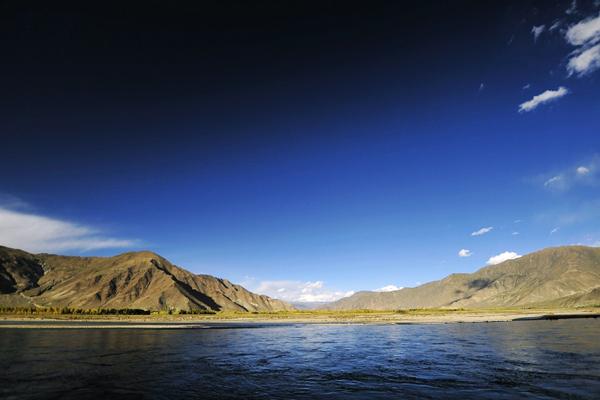| 
Surveys show Tibet's water, air, noise, soil, radiation and environmental quality have been maintained in good condition. [Photo/ Baidu]
Tibet promotes eco-environmental protection comprehensively in 2011 through constructing ecological function protected areas, protecting the ecology of grassland and forest, regulating the exploitation of resource and construction of projects, controlling environmental pollution and other measures.
In 2011, Tibet fully implemented "Tibet's ecological security barrier protection and construction planning" approved on the State Council executive meeting and put 760 million yuan of investment into use, source from the government work report of Padma Tsinle, chairman of Tibet autonomous region on the Fifth Session of the Ninth Tibet People's Congress.
It has made great achievement in the security barrier construction, such as improving the reward and compensation mechanism in grassland and forest protection, constructing and regulating natural reserves, enhance the protection of drinking water sources and soil, carrying out integrated environmental management, enhancing law enforcement and regulation and so on.
To protect the ecological environment in Tibet, the central government and Tibet government has made five subsidy policies, including natural forest protection project, returning farmland to forest and pasture, forest ecological benefit compensation fund and other measures to make the fragile ecological environment of Tibet well protected. And only funds for natural forest protection and management have reached 22.23 million yuan in a year.
In the 12th "five-year plan" (2011-2015), the investment on eco-environment protection is 9.8 billion yuan, amounting for 5.1% of the total. At present, the area of nature reserves in Tibet accounts for 34.5% of its land area, ranking first in China. Surveys show Tibet's water, air, noise, soil, radiation and environmental quality have been maintained in good condition. |
